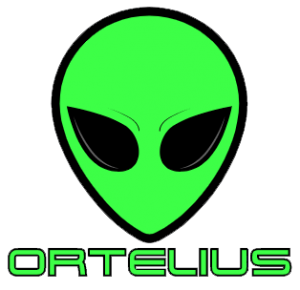Find and Fix Open-Source Vulnerabilities Impacting Live Systems
Ortelius Delivers Post-Deployment, Defensive Vulnerability Management for Live Systems
Your platform doesn’t stop changing after deployment.
Once services hit production, dependency graphs shift, versions drift, and new CVEs appear daily, but most platforms lose visibility the moment software ships. Ortelius provides a real-time deployment control plane built on a continuously updated digital twin of your runtime environment. It models deployed services, containers, packages, and their dependency topology across clusters and environments.
No agents. No rescanning. No stale SBOMs.
With Ortelius, platform teams can:
-
Track CVE Impact – Instantly identify which running services in each environment are affected when a new vulnerability is introduced
-
Maintain Operational Service Intelligence – Maintain an accurate, continuously updated inventory of deployed components without agents or rescanning
-
Deliver Faster Change Response – Prioritize remediation based on real deployment impact, reducing mean time to resolution for issues affecting live systems
The Ortelius Community, managed by the Continuous Delivery Foundation, maintains the latest version, with corporate SaaS hosting support from DeployHub a post-deployment vulnerability detection platform designed to expedite remediation patches for the Enterprise.

Exposing Threats and Reducing MTTR
Ortelius enables platform teams to convert operational insight into executive-level security intelligence. When a newly disclosed vulnerability affects a running service, Ortelius immediately identifies the exposed systems and the urgency of response, providing clarity the moment risk appears.
With exploits now emerging in days, not months, and average remediation timelines stretching beyond 60–100 days, Ortelius focuses attention on the vulnerabilities that matter now. CISOs gain real-time visibility into threats impacting live production systems, allowing teams to prioritize response within hours, not weeks.
This shared, runtime-driven view of risk aligns platform engineering and security leadership around a single source of truth, reducing mean time to remediation, shrinking the attack surface, and enabling faster containment before exposure escalates into operational outages or reportable security incidents.
Why Post-Deployment Visibility Matters
Risk doesn’t stop at release. New vulnerabilities are disclosed continuously after software is deployed, when services are already running in production. Without runtime visibility, teams cannot determine what is truly exposed.
Ortelius correlates new CVEs with what is actually deployed, enabling teams to act on real risk, not assumptions.
-
Real-time CVE relevance for running workloads
-
Live attack surface visibility across environments
-
Environment-based risk prioritization
-
Executive-ready reporting of immediate production threats
-
For CISOs: Ortelius delivers a real-time view of which vulnerabilities pose active risk to live systems—separating urgent threats from theoretical exposure.
Ortelius - a Defensive Edge
CVE-to-Runtime Dependency Correlation
Automatically correlate newly disclosed CVEs to deployed dependency graphs, identifying impacted workloads, services, and clusters in real time.
Live Attack Surface Topology Awareness
Visualize the runtime attack surface as a dynamic topology map spanning production, cloud, hybrid, and edge environments—based on actual deployment state.
Continuous Attack Surface Insight
Understand your true runtime exposure across production, cloud, and edge environments based on what is actually deployed, not theoretical risk.
End-to-End Delivery Lineage & Provenance
Trace software from source commit through CI/CD workflows to deployed runtime artifacts, preserving SBOM provenance and build-to-deploy lineage for audit, incident response, and change governance.
Built for Platform Engineers and CISO
Ortelius supports your DevSecOps pipeline and security compliance:
- Zero Trust enforcement
- NIST 800-53 and 800-171 support
- Continuous Authority to Operate (cATO) readiness
- SBOM and RMF reporting
- DoD and civilian security mandates

Extend Jenkins for Continuous Post Deployment Security
Ortelius extends Jenkins by adding continuous vulnerability monitoring for deployed applications. Unlike traditional SCA tools that scan source code or container images during the build, Ortelius focuses on what matters most: what’s actually running in production and is the most vulnerable to attack.
Sign-up and Get Started Managing Post Deployment CVEs
From discovering where open-source packages are being used, to federating OpenSSF Scorecard and Application Security Posture Management data, Ortelius serves as a central hub for managing, evaluating, and responding to vulnerabilities, and understanding the risk associated to consuming open-source packages from code to cloud.
Get started with Ortelius using the free SaaS version. Take a quick tutorial and see it in action.

Pull Request Encouraged - Become a Committer
Our Inspiration
Abraham Ortelius

Abraham Ortelius made his name by collecting data from scientists, geographers, and cartographers of his time and transforming it into what the world now knows as a world Atlas. His Atlas, titled Theatrum Orbis Terrarum (Theatre of the World), was published on May 20, 1570. His Atlas disrupted the way the world was seen, with the first concepts imagining continental drift. Also of interest are the sea monsters shown in the water – mythical creatures that were a subject of fascination in Ortelius’ generation.
A Thought Leader in Sharing
Ortelius also in some ways created on open source community of his day. To accomplish his goal, he was the first cartographers to give credit to his fellow scientists by adding their names to the Atlas. Ortelius was known to have corresponded with other professionals throughout Europe and pulled together their knowledge to create his publication and a truly global view of the world.
Thank you Abraham Ortelius for showing us the way.
